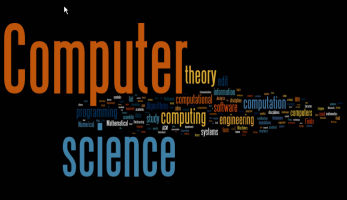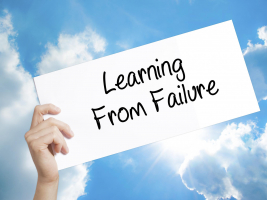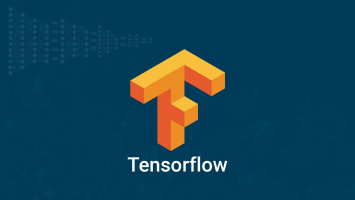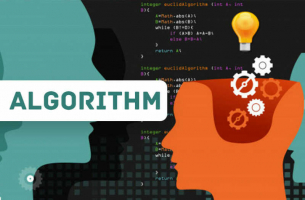Top 10 Best Books On Logic
Logic is the study of reasoning and argumentation, which has been a subject of interest for philosophers, mathematicians, and scientists for centuries. Whether ... read more...you are a student of philosophy, mathematics, or computer science, understanding logic is essential for critical thinking and problem-solving skills. There are numerous books on logic available in the market, and choosing the best one can be a daunting task. In this article, we will introduce you to some of the best books on logic that cover a broad range of topics, from classical logic to modern symbolic logic.
-
Being Logical: A Guide to Good Thinking, by D.Q. McInerny, is a concise and accessible book that aims to help readers improve their critical thinking skills. McInerny, a professor of philosophy and author of several books on philosophy, begins by acknowledging the importance of logic in our daily lives. From making informed decisions to understanding complex issues, being able to think logically is essential for success in all aspects of life.
The book's introduction provides a brief overview of what readers can expect from the rest of the book. McInerny notes that he aims to provide a practical guide to logical thinking, rather than a theoretical treatise on the subject. The book is organized into four main sections: the nature and structure of argument, the principles of correct reasoning, the techniques of analysis and synthesis, and the applications of logic to everyday life.
McInerny's writing style is clear and straightforward, making the book easy to understand even for readers with little to no background in philosophy or logic. He uses numerous examples to illustrate his points and provides exercises at the end of each chapter to help readers practice their newfound skills.
Overall, among the best books on logic, Being Logical is an excellent resource for anyone looking to improve their critical thinking skills. McInerny's practical approach and clear writing style make the book both informative and enjoyable to read. Whether you're a student, a professional, or simply someone who wants to make better decisions in their personal life, this book has something to offer.
Author: D.Q. McInerny
Link to buy: https://www.amazon.com/dp/0812971159
Ratings: 4.4 out of 5 stars (from 515 reviews)
Best Sellers Rank: #101,318 in Books
#47 in Philosophy of Logic & Language
#4,840 in Education & Teaching (Books)
#7,847 in Reference (Books)

Photo by Volodymyr Hryshchenko on Unsplash 
Photo by 愚木混株 cdd20 on Unsplash -
Logic is a discipline that deals with reasoning, argumentation, and inference. It is essential to many fields, including philosophy, mathematics, computer science, and linguistics. For those interested in understanding the fundamentals of logic, Graham Priest's book, Logic: A Very Short Introduction, is an excellent starting point. The book is currently available for purchase on Amazon.
Graham Priest is a prominent philosopher and logician who has contributed significantly to the field of logic. He is best known for his work on non-classical logic, including paraconsistent and dialetheic logics. Priest has authored numerous books and papers on logic, philosophy, and Buddhism.
In Logic: A Very Short Introduction, Priest provides a concise and accessible introduction to logic. The book covers the basics of logic, including propositional and predicate logic, inference rules, and proofs. Priest also introduces readers to more advanced topics, such as modal logic and non-classical logics.
The book is structured in a way that makes it easy for readers to understand and follow. Priest uses clear and concise language and provides plenty of examples and exercises throughout the book. The book is ideal for anyone looking to learn about logic for the first time, including students and general readers.
Overall, Logic: A Very Short Introduction is an excellent book for anyone interested in learning about the basics of logic. It provides a clear and concise introduction to the subject and is an excellent starting point for those looking to explore the field further.
Author: Graham Priest
Link to buy: https://www.amazon.com/dp/0198811705
Ratings: 4.4 out of 5 stars (from 362 reviews)
Best Sellers Rank: #169,118 in Books
#9 in Logic (Books)
#59 in Mathematical Logic
#92 in Philosophy of Logic & Language

Image by PIRO from Pixabay 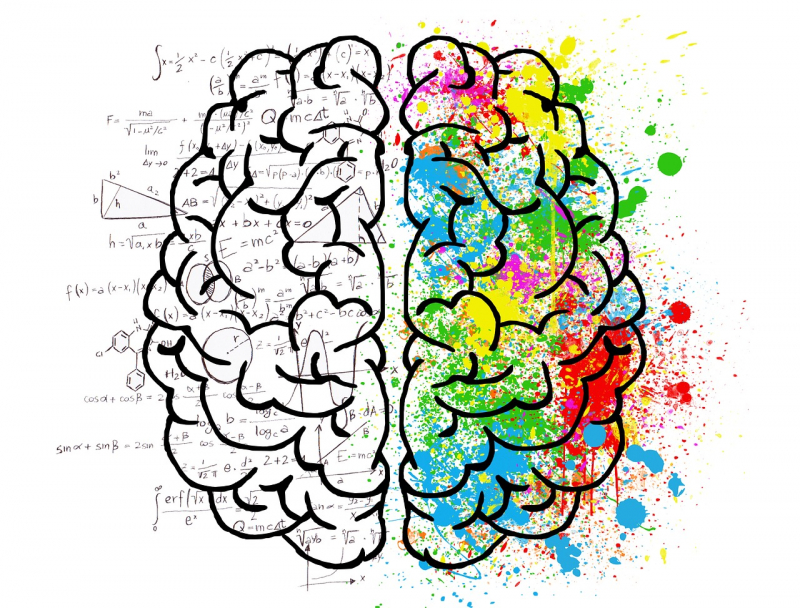
Image by Elisa from Pixabay -
"Introduction to Logic" by Irving M. Copi and Carl Cohen is a comprehensive guide to the fundamental principles of logical reasoning. The book provides a detailed introduction to the study of logic, including deductive and inductive reasoning, propositional and predicate logic, and the methods used to evaluate arguments for validity and soundness.
Irving M. Copi was a renowned philosopher and logician who taught at the University of Michigan for over thirty years. He was widely regarded as one of the leading scholars in the field of logic, and his work had a profound influence on the development of logical theory in the twentieth century. Carl Cohen was also a prominent philosopher, who spent much of his career at the University of Michigan, where he served as a professor of philosophy and animal ethics.
The book's introduction lays out the basic principles of logic and provides an overview of the topics covered in the subsequent chapters. The authors emphasize the importance of logical reasoning in everyday life, noting that the ability to think critically and reason logically is essential for making sound decisions and avoiding common fallacies. The book is designed to be accessible to readers with little or no background in logic, and the authors provide clear explanations of key concepts and techniques throughout.
Overall, "Introduction to Logic" is an excellent resource for anyone looking to develop their skills in logical reasoning. It provides a solid foundation in the principles of logic, and offers practical guidance on how to apply these principles to real-world situations. Whether you are a student, a professional, or simply someone interested in improving your reasoning abilities, this book is sure to be a valuable addition to your library. It is among the best books on logic.
Author: Kenneth McMahon , Irving M. Copi , Carl Cohen
Link to buy: https://www.amazon.com/dp/1292024828
Ratings: 4.3 out of 5 stars (from 258 reviews)
Best Sellers Rank: #1,442,035 in Books
#241 in Logic (Books)
#1,311 in Philosophy of Logic & Language

Image by PIRO from Pixabay 
Image by Zoltan Matuska from Pixabay -
Tractatus Logico-Philosophicus is a groundbreaking work of philosophy by the Austrian philosopher and logician Ludwig Wittgenstein. First published in 1921, it is widely regarded as one of the most important and influential philosophical works of the 20th century. The Tractatus represents Wittgenstein's early thinking on the nature of language, logic, and reality, and it continues to shape debates in these areas today.
Wittgenstein was born in Vienna in 1889, and he studied engineering before turning his attention to philosophy. He was heavily influenced by the work of his mentor, Bertrand Russell, and his early thinking was characterized by an attempt to reduce all meaningful propositions to their logical form. This approach led him to write the Tractatus, which he saw as a comprehensive analysis of the nature of language and thought.
The Tractatus is structured as a series of numbered propositions, each building on the one before it. The work is highly systematic and organized, and it aims to show that all meaningful statements can be reduced to simple, logically structured propositions about the world. Wittgenstein's famous dictum, "What can be said at all can be said clearly, and what we cannot talk about we must pass over in silence," is a key theme of the Tractatus.
The Tractatus had a profound impact on philosophy and logic, and it inspired many philosophers who followed in Wittgenstein's footsteps, including the later Wittgenstein himself. It is a challenging and thought-provoking work that rewards close study and careful consideration.
Author: Ludwig Wittgenstein
Link to buy: https://www.amazon.com/dp/1463562918
Ratings: 4.5 out of 5 stars (from 327 reviews)
Best Sellers Rank: #545,301 in Books
#400 in Philosophy of Logic & Language
#991 in Modern Philosophy (Books)

Image by PIRO from Pixabay 
Image by Fernando Latorre from Pixabay -
Logically Fallacious is a comprehensive guide to identifying and avoiding the most common errors in reasoning. Written by Bo Bennett, a prolific author and speaker on the topic of critical thinking, the book is an essential resource for anyone looking to improve their ability to think critically and make sound judgments.
The book begins with an introduction that outlines the importance of critical thinking and the consequences of not thinking critically. Bennett stresses the idea that fallacious thinking is not only intellectually lazy, but can also have serious real-world consequences, such as perpetuating harmful myths, spreading misinformation, and making poor decisions that can negatively impact one's life.
From there, Bennett dives into a detailed analysis of logical fallacies, or mistakes in reasoning that can lead to flawed conclusions. Each fallacy is described in clear, concise language, and accompanied by numerous examples that illustrate how the fallacy can be used to manipulate or mislead. The book covers a wide range of fallacies, including ad hominem attacks, straw man arguments, false dichotomies, and many more.
In addition to providing a thorough overview of logical fallacies, Logically Fallacious also includes practical advice on how to identify and avoid fallacious thinking. Bennett provides readers with a toolkit of critical thinking skills, including how to ask good questions, evaluate evidence, and recognize biases.
Overall, Logically Fallacious is an indispensable resource for anyone looking to improve their critical thinking skills and avoid the pitfalls of fallacious thinking. Whether you are a student, a professional, or just someone interested in improving your ability to think critically, this book is a must-read. It is one of the best books on logic.
Author: Bo Bennett PhD
Link to buy: https://www.amazon.com/gp/aw/d/1456607529/
Ratings: 4.3 out of 5 stars (from 381 reviews)
Best Sellers Rank: #265,186 in Books
#61 in Philosophy Reference (Books)
#158 in Philosophy of Logic & Language
#3,156 in Education Theory (Books)

Image by Thanasis Papazacharias from Pixabay 
Image by Gerhard from Pixabay -
A Concise Introduction to Logic, authored by Patrick J. Hurley, is a comprehensive textbook that covers the fundamental concepts and principles of logic. The book is widely used in introductory logic courses in universities across the world.
Patrick J. Hurley is a well-known philosopher and logician who has published numerous articles and books on logic. He has a Ph.D. in philosophy from the University of Buffalo and has taught philosophy at the University of San Diego for more than 40 years. Hurley is known for his engaging and accessible writing style, which makes complex ideas easy to understand.
The book begins with an introduction to the nature of logic and its importance in everyday life. It then covers the various forms of deductive and inductive reasoning, including categorical syllogisms, propositional logic, and quantification theory. The book also explores the topics of fallacies, language, and truth, as well as the principles of scientific reasoning.
One of the strengths of A Concise Introduction to Logic is its use of clear and concise language, making it accessible to students with little or no prior knowledge of logic. The book also includes numerous examples and exercises, allowing students to apply the concepts they have learned.
Overall, A Concise Introduction to Logic is a valuable resource for students and anyone interested in improving their critical thinking and reasoning skills. Among the best books on logic, the book is an excellent starting point for those looking to delve deeper into the study of logic and philosophy.
Author: Lori Watson , Patrick J. Hurley
Link to buy: https://www.amazon.com/dp/1305958098
Ratings: 4.2 out of 5 stars (from 562 reviews)
Best Sellers Rank: #404,020 in Books
#622 in Philosophy (Books)
#2,780 in Education (Books)
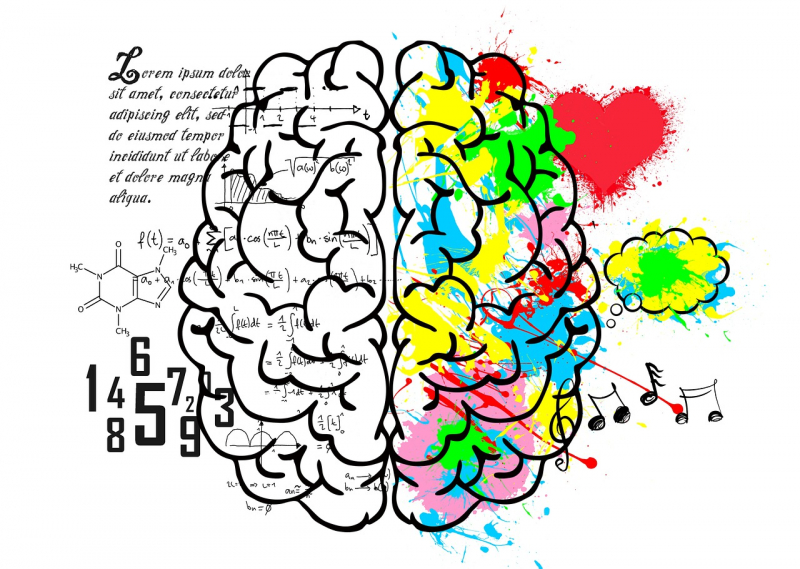
Image by Tumisu from Pixabay 
Image by Gábor Adonyi from Pixabay -
The Logic of Scientific Discovery is a seminal work in the philosophy of science, written by the Austrian philosopher Karl Popper. Originally published in German in 1934 under the title Logik der Forschung, the book has been translated into many languages and has been widely influential in shaping the way scientists and philosophers think about the nature of scientific inquiry.
Karl Popper was born in Vienna in 1902 and grew up in a family of Jewish intellectuals. He studied philosophy at the University of Vienna and later worked as a teacher and lecturer in philosophy and psychology. Popper fled Austria in 1937 to escape the Nazi regime and eventually settled in England, where he became a professor at the London School of Economics.
In The Logic of Scientific Discovery, Popper challenges the conventional view that science proceeds by the accumulation of empirical observations and the verification of theories. Instead, he argues that scientific knowledge can never be absolutely certain, but can only be falsifiable—that is, subject to refutation by empirical evidence. Popper's theory of falsifiability has become a cornerstone of modern scientific methodology and has been influential in a variety of fields, from physics and biology to economics and psychology.
The book's introduction lays out Popper's central argument and sets the stage for his discussion of scientific methodology. Popper begins by critiquing the inductive method of scientific inquiry, which he argues is based on the flawed assumption that observations can lead to certain knowledge. He then introduces his theory of falsifiability, which he argues provides a more rigorous and reliable method for testing scientific theories.
Overall, The Logic of Scientific Discovery is a groundbreaking work that challenges many of the assumptions underlying traditional views of science. It continues to be a must-read for anyone interested in the philosophy of science or the scientific method.
Author: Karl R. Popper
Link to buy: https://www.amazon.com/dp/1614277435
Ratings: 4.7 out of 5 stars (from 88 reviews)
Best Sellers Rank: #176,589 in Books
#18 in Philosophy Methodology
#151 in Quantum Theory (Books)
#722 in History & Philosophy of Science (Books)
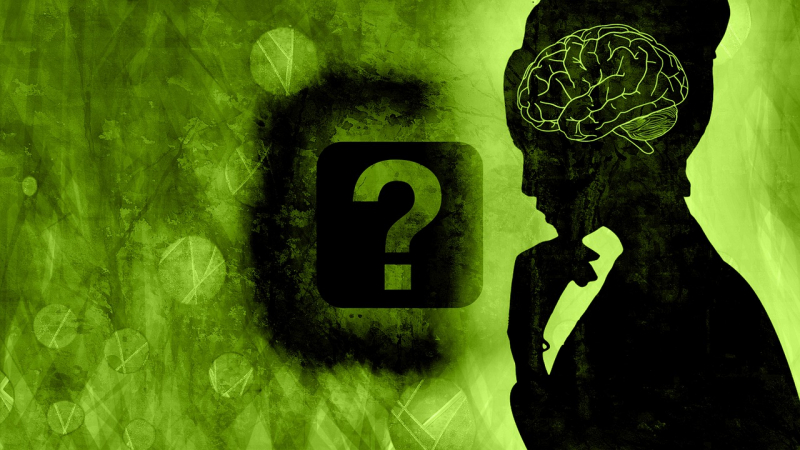
Image by Chen from Pixabay Video: Books in Blinks's Youtube Channel -
The Power of Critical Thinking is a book written by Lewis Vaughn, a prominent philosopher and educator who has written extensively on topics related to critical thinking and ethics. In this book, Vaughn offers a comprehensive guide to developing critical thinking skills that can be applied in all areas of life, from academic and professional pursuits to personal decision-making.
The book begins with an introduction that outlines the importance of critical thinking in today's world, where misinformation and biased thinking are rampant. Vaughn argues that critical thinking is essential for navigating the complexities of modern life, and that it can be cultivated through practice and the acquisition of specific skills.
Throughout the book, Vaughn provides clear explanations and examples of key concepts and skills related to critical thinking, including evaluating evidence, identifying fallacies, analyzing arguments, and making sound judgments. He also emphasizes the importance of intellectual humility, open-mindedness, and a willingness to revise one's beliefs in light of new evidence.
The Power of Critical Thinking is intended for anyone who wants to improve their reasoning skills and become a more effective thinker and communicator. It is particularly useful for students, educators, and professionals in fields such as business, law, and medicine, where critical thinking skills are highly valued.
Overall, this book offers a practical and accessible approach to developing critical thinking skills that can be applied in a variety of contexts. With its clear explanations and practical examples, it is an invaluable resource for anyone looking to improve their reasoning abilities and become a more informed and thoughtful person.
Author: Lewis Vaughn
Link to buy: https://www.amazon.com/dp/0190852712
Ratings: 4.4 out of 5 stars (from 343 reviews)
Best Sellers Rank: #155,681 in Books
#8 in Logic (Books)
#83 in Philosophy of Logic & Language
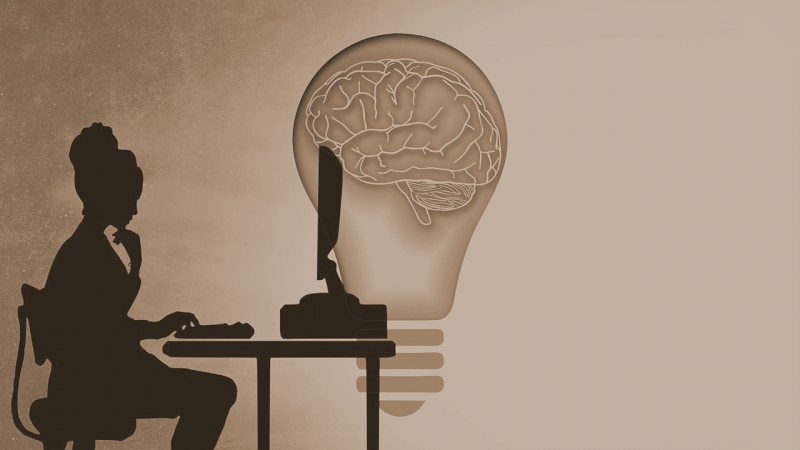
Image by Chen from Pixabay 
Image by Chen from Pixabay -
Logic For Dummies is a comprehensive guide to the fundamental principles of logic, designed to help readers understand and apply logic to everyday situations. Written by Mark Zegarelli, a mathematician and professional tutor, this book provides a step-by-step approach to understanding logic, with clear explanations and examples throughout.
Mark Zegarelli is the author of several books on mathematics, including Basic Math & Pre-Algebra For Dummies and Calculus II For Dummies. He has a Bachelor's degree in math from Rutgers University and a Master's degree in math education from the University of North Carolina at Chapel Hill. With over 30 years of tutoring experience, Zegarelli is well-versed in helping students grasp difficult concepts in mathematics and logic.
The book begins with an overview of what logic is and why it is important, before moving on to basic principles such as propositions, arguments, and syllogisms. Zegarelli then covers more advanced topics such as truth tables, logical equivalences, and predicate logic. The book also includes chapters on informal fallacies and using logic in everyday life, making it a valuable resource for anyone looking to improve their critical thinking skills.
Whether you are a student looking to improve your grades in a logic course, or simply interested in learning more about this important subject, Logic For Dummies is an accessible and engaging guide that will help you master the fundamentals of logic. With its clear explanations and practical examples, this book is an excellent resource for anyone looking to improve their logical reasoning skills.
Author: Mark Zegarelli
Link to buy: https://www.amazon.com/dp/0471799416
Ratings: 4.4 out of 5 stars (from 176 reviews)
Best Sellers Rank: #130,791 in Books
#28 in Mathematics Reference (Books)
#40 in Mathematical Logic
#63 in Philosophy of Logic & Language

Image by VBlock from Pixabay Video: Tapas SD's Youtube Channel -
The Pyramid Principle: Logic in Writing and Thinking is a renowned book on communication and problem-solving written by Barbara Minto. First published in 1987, the book has since become a classic in the field of business and management consulting, and is widely used in corporate training programs.
Barbara Minto is an ex-McKinsey consultant who has taught the Pyramid Principle to many of the world's leading consulting firms, including McKinsey & Company, Bain & Company, and the Boston Consulting Group. Her book, The Pyramid Principle, is based on her years of experience in helping executives and consultants improve their communication skills.
The book's introduction explains the core concept of the Pyramid Principle, which is based on the idea that any effective communication should be structured like a pyramid. According to Minto, the pyramid structure consists of three main components: the top-down approach, the grouping of ideas, and the logical order of presentation.
The top-down approach means that the most important information should be presented first, followed by supporting information and details. The grouping of ideas involves organizing information into clusters that are related to each other, and the logical order of presentation means that ideas should be presented in a logical sequence that makes it easy for the audience to follow.
The book's introduction also provides examples of how the Pyramid Principle can be applied in various settings, including writing reports, giving presentations, and problem-solving. In addition, the book includes exercises and case studies that allow readers to practice applying the Pyramid Principle in real-world situations.
Overall, The Pyramid Principle is an essential resource for anyone who wants to improve their communication and problem-solving skills. With its clear and concise writing style, practical examples, and exercises, this book is a must-read for professionals in all fields.
Author: Barbara Minto
Link to buy: https://www.amazon.com/Pyramid-Principle-Logic-Writing-Thinking/dp/1292372265
Ratings: 4.2 out of 5 stars (from 101 reviews)
Best Sellers Rank: #30,111 in Books
#4 in Technical Writing Reference (Books)
#42 in Running Meetings & Presentations (Books)
#410 in Business Management (Books)

Image by Chen from Pixabay Video: Be A Better Dev's Youtube Channel












